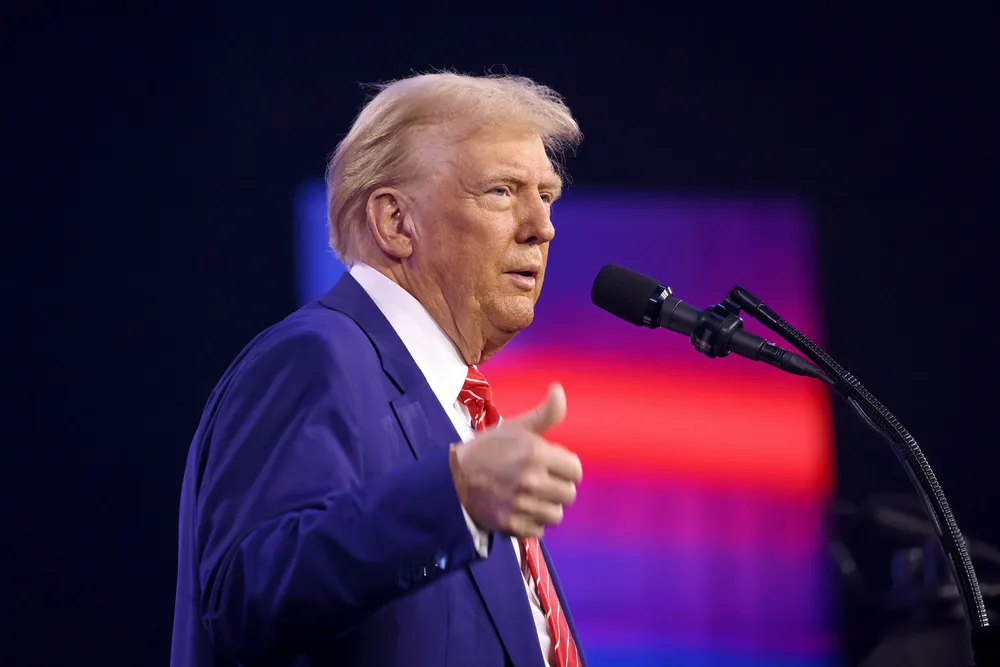Trump makes good on threat to suspend US offshore wind leasing
Order issued in late hours of president’s first day in office exempts existing leases but calls for further environmental and economic impact assessment

President Donald Trump made good on his longstanding threat to move against offshore wind on day one of his new term with an order withdrawing “from disposition for wind energy leasing all areas within the Offshore Continental Shelf (OCS).”
According to text released by the White House, “this withdrawal temporarily prevents consideration of any area in the OCS for any new or renewed wind energy leasing for the purposes of generation of electricity or any other such use derived from the use of wind.”
It specifically exempts offshore oil and gas or subsea mineral leasing and environmental conservation as well as existing offshore wind leases.
For existing offshore wind leases, the memorandum instead orders the Secretary of the Interior “in consultation with the Attorney General as needed, shall conduct a comprehensive review of the ecological, economic, and environmental necessity of terminating or amending any existing wind energy leases.”
It intends to identify “any legal bases for such removal, and submit a report with recommendations to the President.”
Trump's move also has implications for US onshore wind, which is mentioned in the order.
The order cites “potential inadequacies in various environmental reviews” to ban federal departments from issuing “new or renewed approvals, rights of way, permits, leases, or loans for onshore or offshore wind projects pending the completion of a comprehensive assessment and review of Federal wind leasing and permitting practices.”
“The assessment shall consider the environmental impact of onshore and offshore wind projects upon wildlife, including, but not limited to, birds and marine mammals,” the order said.
It “shall also consider the economic costs associated with the intermittent generation of electricity and the effect of subsidies on the viability of the wind industry.”
The order was immediately met with criticism from industry advocates.
Jason Grumet, CEO of industry group American Clean Power Association (ACP), said his group “strongly opposes blanket measures to halt or impede development of domestic wind energy on federal lands and waters.
“Wind power is an essential element of our ability to serve soaring electricity demand for manufacturing and data centers that are key to national security,” Grumet said.
US energy demand is set to surge as data centres serving the needs of artificial intelligence (AI) are soaking up increasing amounts of power.
Utility Dominion Energy, which serves the world’s largest data centre hub in Northern Virginia, forecasts 6% compound annual growth in power demand through 2035.
Grumet also noted that wind energy plays a huge role in powering the economies of Republican-dominated states.
“States voting for President Trump are eight of the top ten states in terms of reliance on wind power with many depending on wind for a significant share of their electricity use,” Grumet said. “Restricting wind development in these regions is certain to increase consumer energy bills.”
Liz Burdock, CEO of offshore wind trade group Oceantic Network, said: “Today’s executive order pausing offshore wind leasing and permitting is a blow to the American offshore wind industry and hurts the hundreds of US supply chain companies and thousands of workers already building more American energy.”
“Today’s actions threaten to strand $25bn already flowing into new ports, vessels, and manufacturing centers, and curtail future investments across our country,” she added.
Industry groups urged the president to rescind the order as part of the new administration’s “commitment to an "all-of-the-above" energy strategy,” said Burdock.
(Copyright)